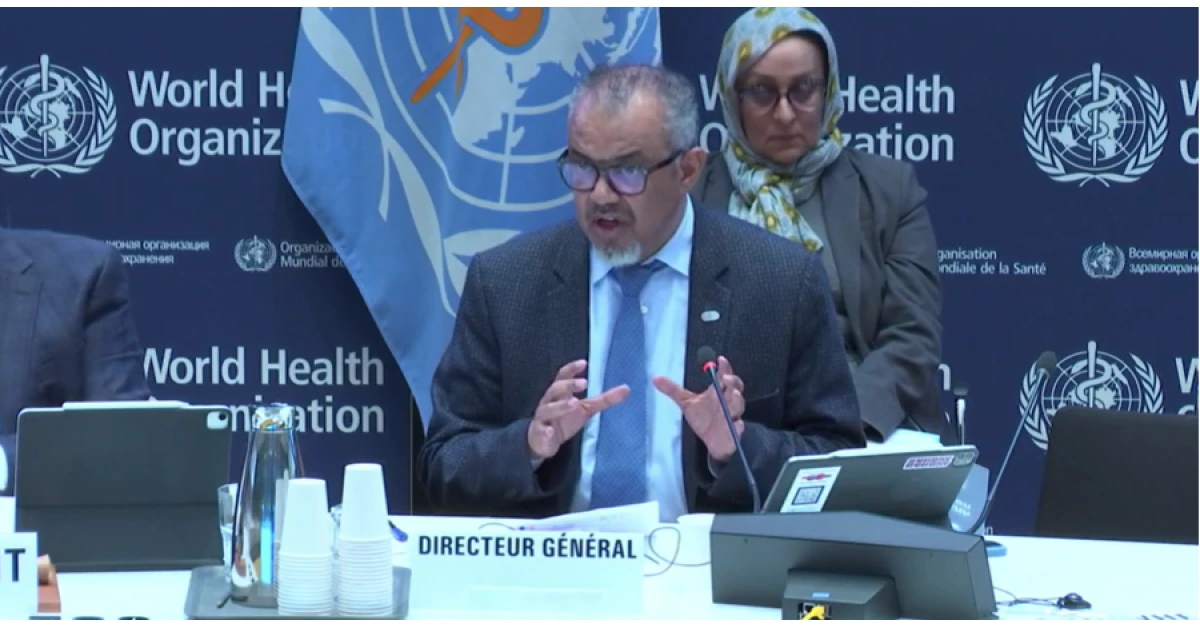
SWITZERLAND – The Director-General of the World Health Organization (WHO), Dr. Tedros Adhanom Ghebreyesus, has once again appealed to the United States to reconsider its decision to withdraw from the global health agency.
Speaking at the close of an eight-day Executive Board meeting on Tuesday, he expressed regret over the U.S. announcement and its reduced participation in the session.
“We regret the announcement by the United States of its intention to withdraw, and it was also sad to see them participating less this week. I think we all felt their absence,” he said. He added that WHO would welcome the chance to have a constructive dialogue with the U.S.
While the U.S. delegation attended the meeting, they remained silent throughout most of the discussions. The only time they spoke was to support Taiwan’s re-admission as an observer at the World Health Assembly (WHA), a move strongly opposed by China.
The meeting was marked by geopolitical and cultural tensions. Some African and Middle Eastern countries, with support from Russia, objected to WHO’s recognition of two reproductive health organizations—Center for Reproductive Rights and Women Deliver—arguing that their work contradicts regional values and principles.
Somalia stated, “After reviewing these organizations’ interpretation of some terminologies and ideologies, it has become clear that we cannot accept their advocacy and promotion.”
Russia also opposed the recognition, saying, “The issue of protecting sexual rights is very contentious within WHO, and this concept is not acceptable for the majority of countries.” Egypt announced that it would raise the issue again at the upcoming World Health Assembly in May.
Meanwhile, Israel protested WHO’s continued ties with the International Federation of Medical Students Associations (IFMSA).
The protest was in response to IFMSA’s decision in August 2024 to suspend relations with its Israeli affiliate over the Gaza war.
However, WHO officials stated that IFMSA had recently informed them that it plans to reconsider lifting the suspension at its next General Assembly in March.
Beyond these political disagreements, the meeting was overshadowed by WHO’s financial challenges following the U.S. decision to withdraw funding.
The U.S. contributed nearly US $1 billion to WHO’s budget for 2024-25, including both assessed and voluntary contributions.
While the withdrawal is legally set to take effect in January 2026, some of the assessed contributions for 2025 remain unpaid, creating uncertainty about WHO’s ability to collect the funds.
The budget crisis was further deepened by China’s continued opposition to a proposed 20% increase in contributions from all WHO member states.
In light of these financial difficulties, WHO’s Executive Board approved about three dozen initiatives, including those on rare diseases and air pollution, but made their implementation dependent on prioritizing the most important and affordable activities before the full WHA meeting in May.
Amid these concerns, the approval of a 9.5% salary increase for WHO’s senior leadership raised eyebrows among some member states.
However, Dr. Tedros defended the move, explaining that it was meant to align WHO salaries with UN standards without increasing overall costs, as it was accompanied by a reduction in the cost-of-living allowance for Geneva-based officials.
Nevertheless, some countries urged WHO to improve financial transparency, particularly regarding staff costs and spending details.
XRP HEALTHCARE L.L.C | License Number: 2312867.01 | Dubai | © Copyright 2025 | All Rights Reserved